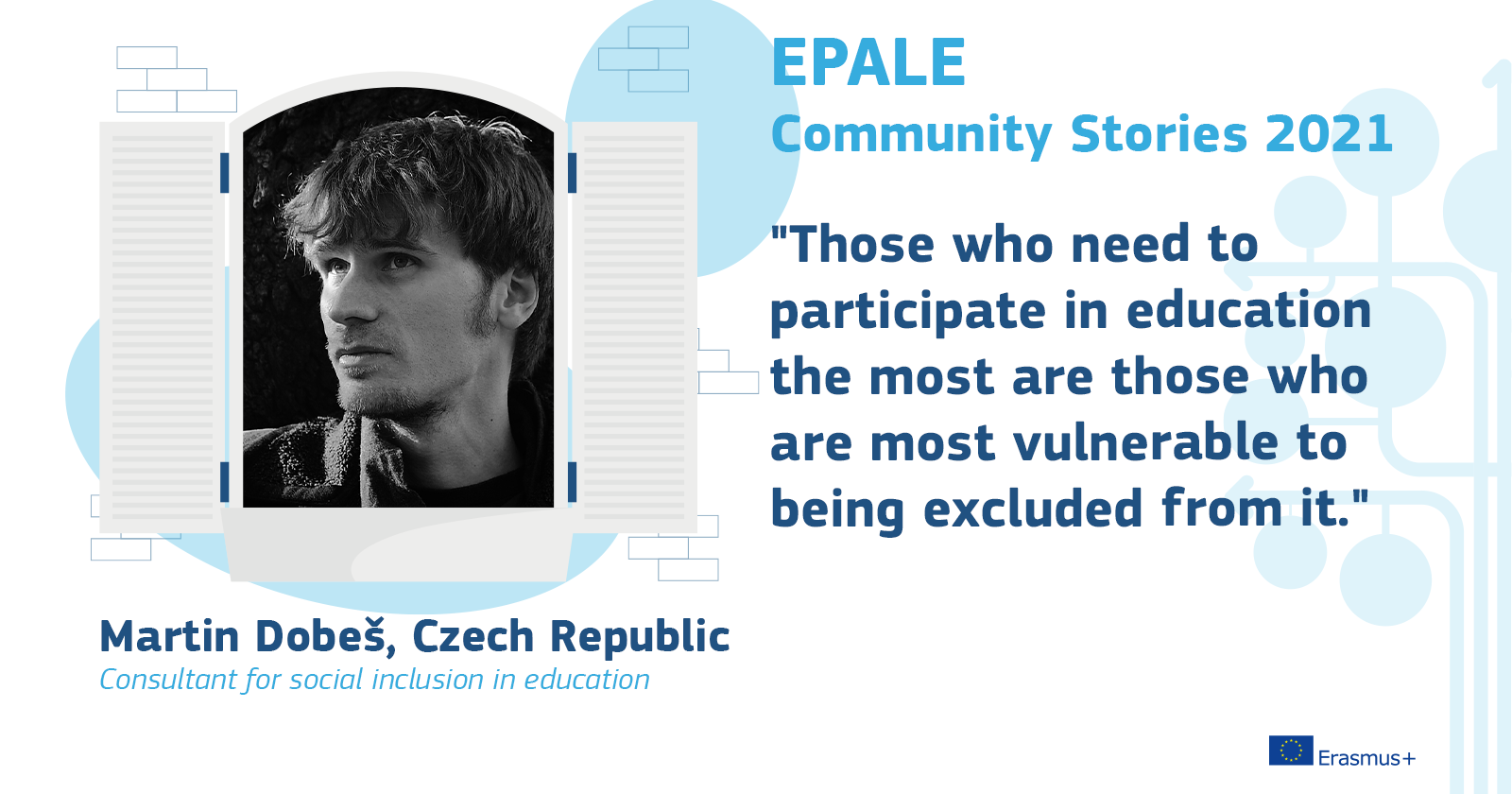Martin Dobeš: we need crises to improve ourselves

Short bio
I started my career in education 20 years ago. From consumer education, I moved to human resources development and then research, and finally to social inclusion in learning. In short, I have experience in a wide range of activities and projects. I now work as a consultant for social inclusion in education for the government Agency for Social Inclusion. I am also an expert on EPALE
My EPALE
I have been a constant member of the EPALE Czech NSS team since its very beginning. Both as an expert, and as an EPALE ambassador. Since the Czech government has taken a step back from helping and intervening in adult education, the EPALE project is one of the very few non-commercial activities in the Czech Republic involved in this area. So, I am happy to play my part.
My Story
Most of us feel that the learning world has changed irreversibly over the past two years. There was a lot of panic and confusion, especially in the beginning. But I have always thought that every crisis brings a seed of opportunity and challenge. As a society, we need crises to improve ourselves. In good times we are more static as we are not forced to think about changing things, because whatever we are doing is working well. But during a crisis, we know we have to adapt and innovate in order to survive. When you look back over history, you see that this has always been the case and that periods of threats have been a tremendous catalyst for significant change.
But it is also true that with rapid change – and we have witnessed a rapid change now – comes some unexpected problems. Change is usually good for some people, while for others it can be a threat.
I work in the area of social inclusion. So, when the pandemic started and we saw a huge rise in online education, I saw it as a great opportunity for the whole learning field, provided we were able to use it smartly. But I also asked myself, who is at risk? What is the risky part of the transition? Though the rise in online education meant that more and more families, companies and organisations have more access to internet, quite quickly we realised that it is not just the access that will determine potential success or failure. It is the competences of people.
While a lot of children moved online without dropping out of the system, those on the edge of society have faced multiple problems adapting. Low digital competencies, low self-esteem, and little motivation combined with low digital competences of teachers have led to a significant drop-out rate. For a whole generation of children, this gap will represent a significant problem in the future.
We have also witnessed a similar pattern in adult education. Many parents were not able to help their children sufficiently or provide adequate conditions for their distant learning. But in many cases, the parents have been unable to help themselves either. Those who need to participate in education the most are those who are most vulnerable to being excluded from it. Thus, we are witnessing a new, larger exclusion in participation in learning – the digital exclusion.
Throughout the pandemic, I was worried about the need to tackle this problem. At the Agency for Social Inclusion, I worked with municipalities, schools and NGOs to help them overcome the problem. I organised webinars that would develop people's skills. These people would then help the most vulnerable parents and children to gain more access to the digital world. We tried to motivate social workers and school workers to get involved too. We tried to do this in such a way that those people would be able to train others in the same skills. We needed the decision makers on different levels to fully understand the problem and the gaps that the situation was creating.
In the Czech EPALE team, we organised a series of webinars and online discussion for trainers, adult educators and others on issues concerning online education. The so called "EPALE Online Academy" became instantly popular, and I hope we contributed to adopting new conditions in the field of adult education. As the end of 2021 draws closer, adult learning providers are anxiously waiting to see what the future has in store and, at least for the time being, we remain hopeful.





